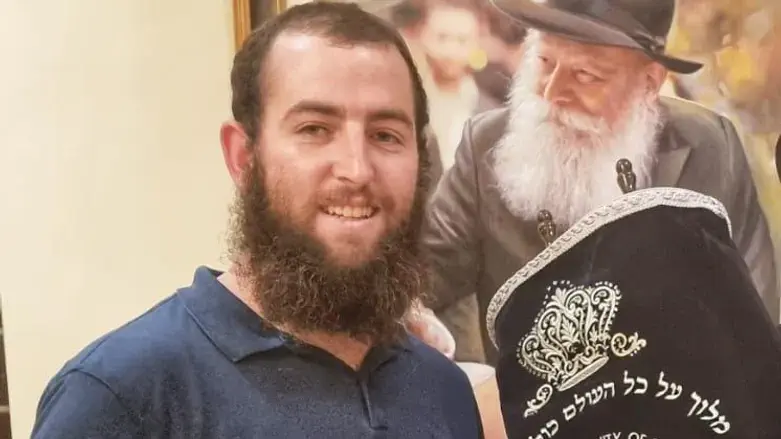A Landmark Verdict in the UAE
In a landmark ruling, a United Arab Emirates (UAE) court has sentenced three Uzbek nationals to death for the murder of Rabbi Zvi Kogan, an Israeli-Moldovan citizen and a prominent figure in the Jewish community in Dubai. The verdict, delivered after a thorough investigation and trial, underscores the UAE’s firm stance on violent crimes and its commitment to justice and public safety.
Who Was Rabbi Zvi Kogan?
Rabbi Zvi Kogan, 28, was a respected member of the Chabad-Lubavitch movement, a global Hasidic Jewish organization known for its outreach activities. He had moved to Dubai in recent years to help establish a growing Jewish community in the UAE, particularly in the wake of the Abraham Accords, which normalized relations between Israel and several Arab nations.
Kogan managed a kosher grocery store in Dubai, catering to the needs of Jewish residents and tourists. He was widely regarded as a warm and dedicated religious figure, committed to building interfaith relations and fostering a sense of community among Jewish expatriates in the UAE.
The Murder and Discovery of Rabbi Kogan’s Body
On November 21, 2024, Rabbi Kogan was reported missing after failing to return home from work. His sudden disappearance prompted an immediate search by both local authorities and concerned community members. Three days later, his lifeless body was discovered in Al Ain, near the border with Oman. The discovery shocked the Jewish community in the UAE and raised concerns about religious tolerance and safety in the region.

Authorities launched an extensive investigation, collecting forensic evidence and reviewing security footage from various locations. The murder was described as brutal, with investigators revealing that Kogan had suffered multiple stab wounds. His death was not only a tragic loss for the Jewish community but also a significant crime that put a spotlight on security measures for religious minorities in the Gulf nation.
Arrest and Identification of Suspects
In the days following the discovery of Kogan’s body, UAE security forces arrested three Uzbek nationals in connection with the murder. The suspects were later identified as Olimboy Tohirovich, 28; Makhmudjon Abdurakhim, 28; and Azizbek Kamilovich, 33. Their exact motives remain unclear, but early reports suggested that the crime was either financially motivated or involved a personal dispute.
The UAE’s Ministry of Interior confirmed the arrests, emphasizing that law enforcement agencies worked swiftly to identify and apprehend the suspects. The authorities collaborated with international intelligence agencies to track down the perpetrators, as some of them had attempted to flee the country after committing the crime.
International Cooperation and Extradition
The arrest and subsequent trial of the three Uzbek suspects were made possible through extensive international cooperation. Turkish intelligence played a crucial role in capturing the individuals in Istanbul, where they were reportedly hiding after fleeing the UAE. In a covert operation, Turkish authorities arrested the suspects and later extradited them to the UAE to face trial.
This level of cooperation between countries highlighted the significance of the case and the commitment of regional law enforcement agencies to ensuring justice. The UAE expressed gratitude to Turkey for its assistance, demonstrating the increasing security coordination between the two nations in combating transnational crime.
The Trial and Sentencing
Once extradited to the UAE, the three Uzbek nationals were brought to trial. The case attracted significant media attention, both locally and internationally, as it marked one of the most high-profile criminal cases involving a foreign religious leader in the country.
During the trial, prosecutors presented substantial evidence linking the defendants to the murder, including surveillance footage, forensic analysis, and witness testimonies. The court found the three men guilty of premeditated murder, leading to the sentencing of the death penalty.
Legal experts noted that the severity of the punishment reflects the UAE’s strict policies regarding violent crimes, particularly those that disrupt social harmony. The death sentence, while rarely carried out in the UAE due to a lengthy appeals process, serves as a powerful deterrent against such acts of violence.
Reactions from the International Community
The sentencing of the three men has triggered a range of responses from international leaders and communities. Israeli Prime Minister Benjamin Netanyahu condemned the murder, calling it a “heinous act of antisemitism and terror.” He further emphasized Israel’s commitment to ensuring justice for its citizens abroad and praised the UAE for taking swift legal action against the perpetrators.
The White House National Security Council also released a statement expressing solidarity with the Jewish community in Dubai and applauding the UAE’s commitment to justice. Several Jewish organizations worldwide echoed these sentiments, calling for increased security for Jewish communities in the region.
The Jewish Community in the UAE and Security Concerns
The Jewish community in the UAE, although small, has grown in recent years following the Abraham Accords. Synagogues, kosher restaurants, and Jewish community centers have been established, reflecting the UAE’s efforts to promote religious tolerance. However, Rabbi Kogan’s murder has raised concerns about security for Jewish residents and visitors.
Many in the Jewish community have expressed grief and fear following the incident, with some calling for enhanced security measures to protect religious leaders and public figures. The UAE government has reassured the community that security will be strengthened, and further initiatives will be implemented to maintain the nation’s reputation as a safe and welcoming place for all religious groups.
The Broader Implications of the Case
Beyond the immediate legal and social consequences, this case highlights broader issues related to security, religious tolerance, and justice in the Middle East. The UAE has positioned itself as a beacon of coexistence and modernity in the region, and this case put its legal system to the test.
The swift arrest and trial of the suspects send a clear message that the UAE will not tolerate acts of violence, regardless of the victims’ religious or ethnic backgrounds. It also underscores the importance of international cooperation in addressing transnational crime and maintaining global security standards.
What Happens Next?
While the court has issued a death sentence for the three Uzbek nationals, the legal process is far from over. Under UAE law, death penalty cases go through multiple levels of appeals, and executions are relatively rare. Human rights organizations have called for transparency in the appeals process, urging the UAE to ensure that justice is served fairly and in accordance with international legal standards.
The families of both the victim and the accused will continue to navigate the legal process, with potential appeals and diplomatic interventions possibly influencing the final outcome. Regardless of the legal proceedings, the case will remain a significant moment in the history of crime and justice in the UAE.
Conclusion
The murder of Rabbi Zvi Kogan and the subsequent sentencing of three Uzbek nationals to death have marked a pivotal moment in the UAE’s legal landscape. The case highlights the country’s dedication to upholding justice, protecting its diverse communities, and maintaining public order. As the Jewish community mourns the loss of a beloved leader, the international community watches closely to see how the UAE continues to balance security, religious coexistence, and legal integrity in the face of such high-profile crimes.
While the appeals process may prolong the final verdict, the UAE’s strong legal response serves as a deterrent against future acts of violence, reinforcing its position as a nation committed to safety and justice for all its residents.
EGA Expands into the U.S.: Transforming the Aluminum Industry



